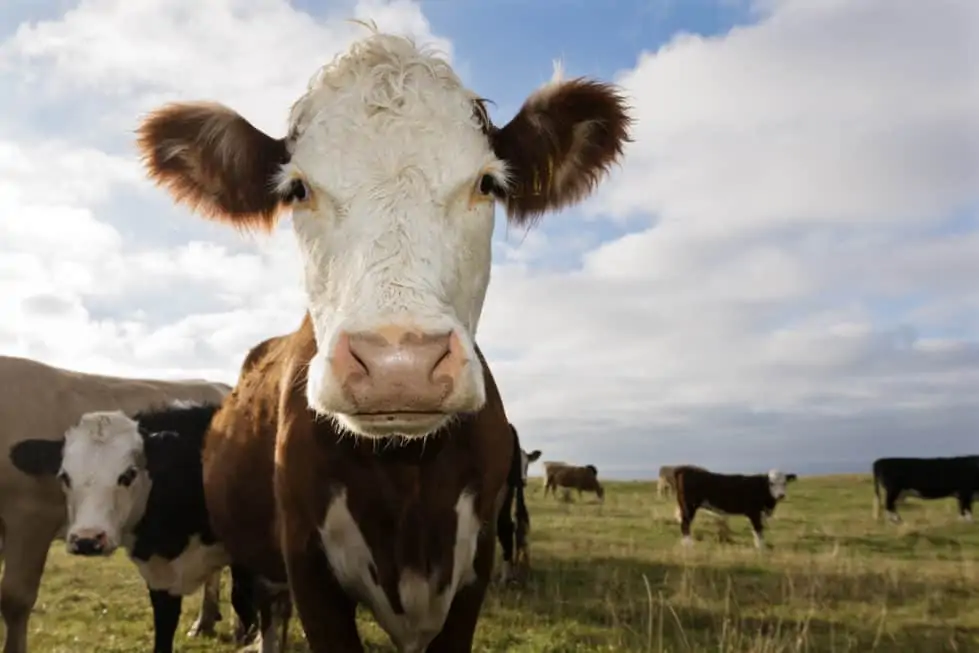The labeling claim “vegetarian fed” means that the animals used to produce the meat, dairy, or eggs were fed a vegetarian diet with no animal products. In the absence of such a label, the Food and Drug Administration allows livestock feed to include slaughterhouse by-products, processed litter from the floor of chicken houses, and processed animal feces. (There is one exception: Ruminant-derived protein is not permitted in cattle feed.) Government agencies that oversee food labeling do not require the “vegetarian fed” claim to be third-party verified through on-farm inspections.
The bottom line:
This claim on its own does not have to be verified. For one that is, look for seals such as USDA Organic or Certified Humane.
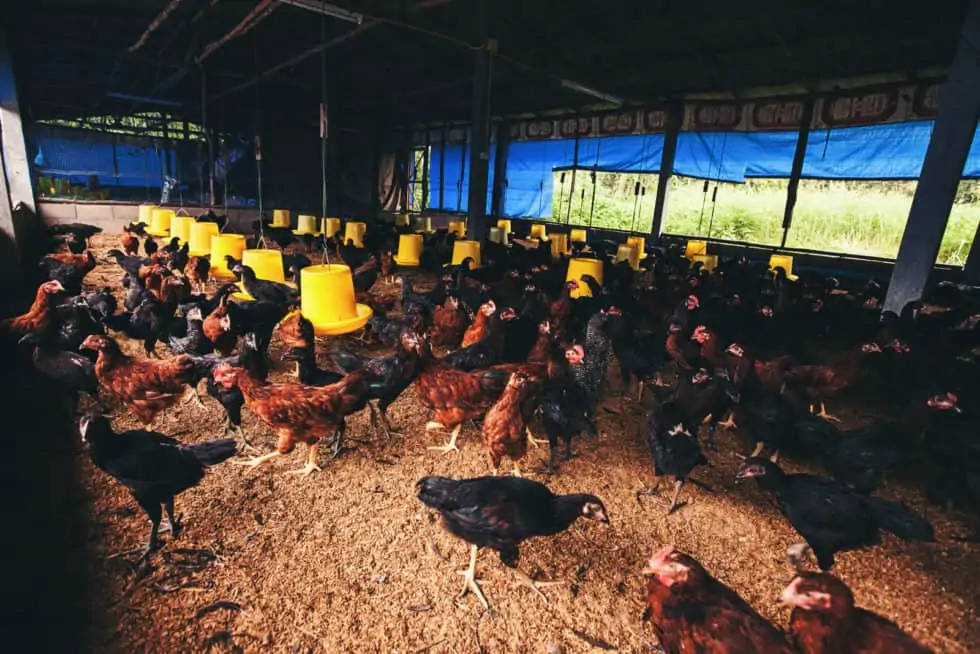
Look for these seals, for strong standards and assurance that a “vegetarian fed” or similar claim has been verified:
USDA Organic
The USDA Organic label means that the animals were raised on a farm that was certified by an accredited agency and is in compliance with all of the requirements of the U.S. Department of Agriculture’s organic standards. These comprehensive regulations promote a sustainable system of agriculture; among the many requirements is a prohibition on feeding formulas containing manure and mammalian or poultry slaughter by-products to mammals or poultry.
USDA Process Verified
The USDA Process Verified shield means that one or more of the claims made on the label have been verified by the USDA. The process verified program employs USDA federal staff to conduct audits to verify the claims.[H page 3 top] The USDA Process Verified program verifies “all vegetarian feed” and similar claims for various poultry producers.
PCO Certified 100% Grassfed
The PCO Certified 100% Grassfed seal means that the animals were raised on certified organic farms and, in addition, were fed only grass and forage, with no grain or animal by-products. Organic regulations prohibit administering antibiotics, hormones, and growth promotants, treating pasture with synthetic herbicides, planting genetically engineered plants such as alfalfa in pasture, and much more. This seal means the “grass fed” claim was verified, with on-farm inspection.
American Grassfed
The American Grassfed seal means that the animals were grass-fed throughout their entire lives (after weaning), with no grain or animal by-products ever. The animals had continuous access to pasture and were not raised in confinement. The standards also prohibit antibiotics, growth hormones, and growth promotants, and the intentional feeding of GMOs. This seal means the “grass fed” claim was verified with on-farm inspection.
Certified Grassfed by AGW
This seal means that the animals producing meat or dairy with the label were fed a 100 percent grass- and forage-based diet, with no grain or animal by-products. Certification for this label is only granted to producers who are also certified to the species-specific Animal Welfare Approved label standards. This seal means the “grass fed” claim was verified, including an on-farm inspection.
NOFA-NY Certified 100% Grass Fed
This seal means that the animals used to produce meat and dairy were raised on certified organic farms and, in addition, meat animals must be fed 100 percent grass or grass-based feed for their entire life, with the exception of milk prior to weaning. Dairy cows must be managed on 100 percent grass or grass-based feeds for at least 90 days before being eligible to sell milk as NOFA-NY Certified 100% Grass Fed. Organic regulations prohibit administering antibiotics, hormones, and growth promotants, treating pasture with synthetic herbicides, planting genetically engineered plants such as alfalfa in pasture, and much more. This seal means the “grass fed” claim was verified, with on-farm inspection.
Certified Humane Raised and Handled
Animal by-products are prohibited in feed, including mammalian and avian-derived protein.
Global Animal Partnership, Step 1-5+
The standards for animal by-products in feed are the same for all step levels: Animal by-products are prohibited in feed, including mammalian and avian-derived protein.
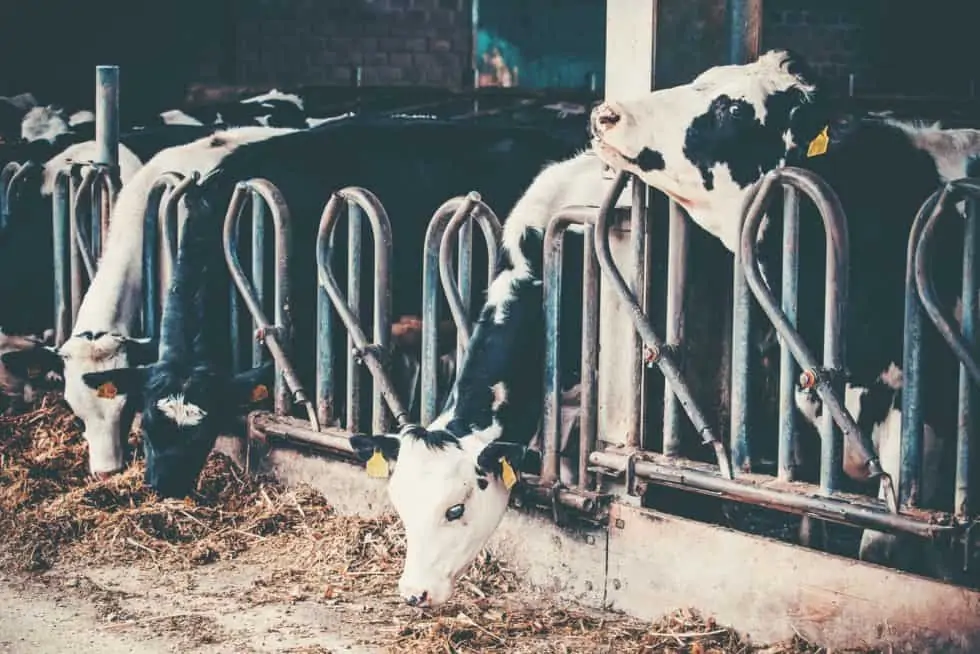
Don’t rely on these claims:
Natural
Government agencies only provide guidance, not regulations, for companies using the “natural” claim on meat and poultry labels. Since there are no consistent standards or federal regulations for the “natural” claim, each company can use its own definition, and definitions vary widely. Meat, poultry, dairy, and eggs labeled “natural” do not necessarily come from animals fed a vegetarian diet.
American Humane Certified
Standards for dairy cows and beef cattle prohibit ruminant-derived protein sources (such as slaughterhouse waste) with the exception of milk and milk product in feed. This is in line with FDA regulations for all dairy cows and beef cattle and therefore does not exceed the industry norm. Thus, pig and poultry slaughter waste products, poultry litter, and feces are allowed in cattle feed.
American Humane Certified standards for pork prohibit mammalian-derived protein sources, with the exception of milk and milk products. This means avian-derived protein sources, including poultry slaughter waste products, poultry litter, and feces are allowed in pig feed.
For chickens, turkeys and laying hens, standards allow feeding animal by-products, including slaughter waste products.
More on the Vegetarian Fed claim
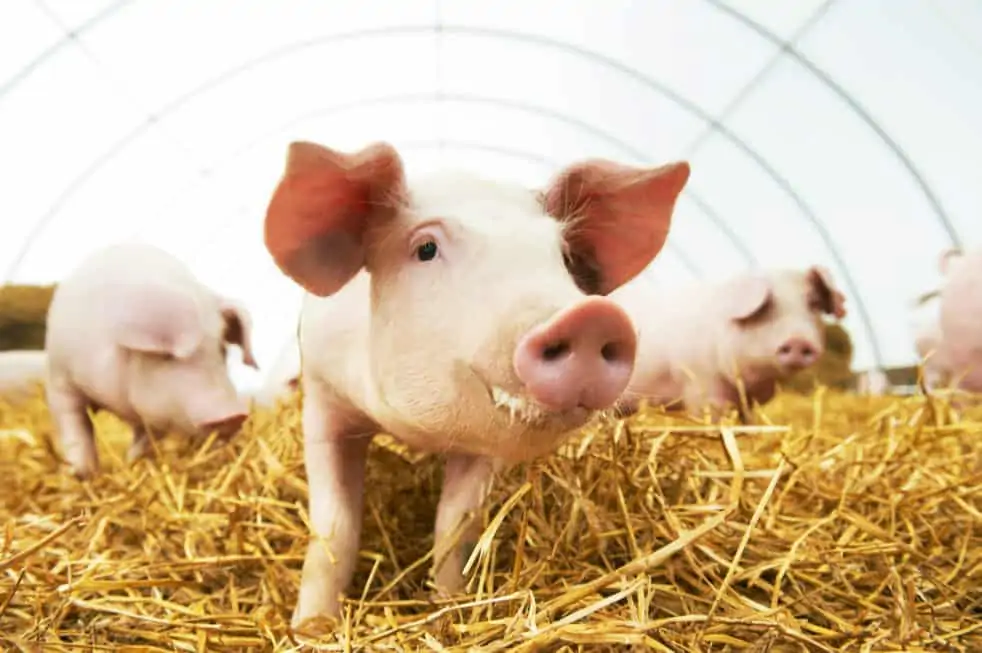
Why it matters
The Food and Drug Administration allows food-producing animals to be fed ingredients derived from other animals, even animals of the same species (e.g., chicken slaughter waste can be fed to chickens) and even when the animals are natural herbivores (e.g., beef cattle and dairy cows can be fed slaughterhouse waste derived from pigs and chickens). To prevent the risk of bovine spongiform encephalopathy (BSE), the FDA prohibits ruminant-derived protein in cattle feed and certain ingredients derived from cattle in the food or feed of all animals.
The FDA also allows animal waste, such as manure and used litter from the floor of chicken houses, to be processed into animal feed ingredients. This cost-cutting practice has been in use for decades and raises concerns, as these ingredients can result in the presence of a range of biological, chemical, and other etiologic agents in feed that can affect the quality and safety of animal-based food products and pose potential risks to human health.
The FDA does not take an active surveillance role in the regulation of processed animal waste as an ingredient; rather, it leaves this role to the states. The FDA expects that processed animal waste products will conform to the definitions promulgated by the Association of American Feed Control Officials (AAFCO). The AAFCO requires that waste products be tested for harmful materials and biological contaminants as specified by individual state regulations, but those state regulations can be weak. It also recommends, but does not require, testing for materials such as drugs, pesticides, pathogenic organisms, heavy metals, parasitic larvae or ova, and mycotoxins.
In 2009, Consumers Union (the policy and mobilization arm of Consumer Reports) endorsed a citizen petition asking the FDA to ban poultry litter in feed for cows. The petition, filed by Food Animal Concerns Trust, argued that using poultry manure and other poultry litter in feed poses public health risks because they can contain disease-causing bacteria, antibiotics, heavy metals, feed ingredients normally prohibited for cattle such as meat and bone meal from dead cattle, and even foreign objects, such as dead rodents, rocks, nails, and glass. The FDA continues to allow the use of poultry litter and other animal by-products in animal feed.
By contrast, in the European Union, only by-products from healthy animals slaughtered for human consumption can be used in animal feed. Regulations there prohibit the use of carcasses from sick animals, animals treated with growth hormones, or animals that could contain residues of dioxins or other environmental contaminants. Further regulations prohibit feeding animal protein to natural herbivores, such as beef cattle and dairy cows, and there are restrictions on the use of animal proteins for non-ruminants, such as chickens and pigs. Recycling waste within a species (or cannibalism) is prohibited for other species, so waste from slaughtered pigs cannot be fed to pigs, and chicken cannot be fed to chickens. A similar prohibition does not exist in the U.S., where farm animals can be fed by-products of the same species.
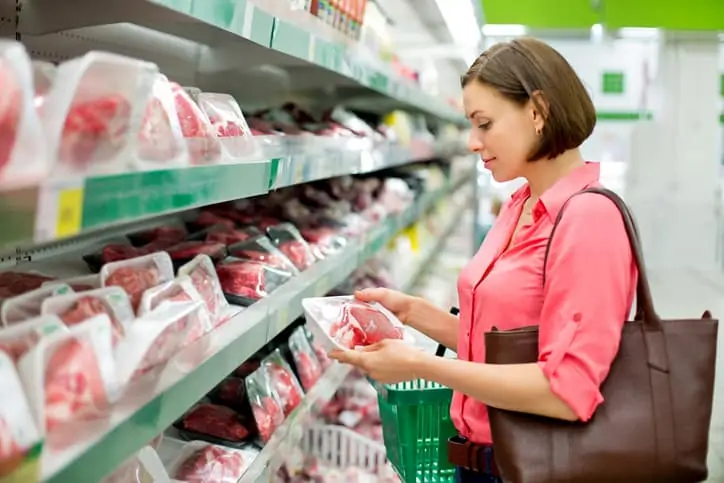
Can you trust the claim? Is it verified?
No.
Meat and poultry. Labels on meat and poultry are regulated by the U.S. Department of Agriculture (USDA). On meat labels, producers can make a “vegetarian fed” claim after submitting a one-time label application with the USDA, with required documentation describing the animals’ diet to support that the “vegetarian fed” claim is not false or misleading. However, there is no requirement for on-farm inspections and no requirement for annual review or auditing of the producer’s records to ensure compliance.
To obtain approval for the label, producers that make a “vegetarian fed” claim on the label have to submit the following:
- A detailed written description explaining controls for ensuring that the raising claim is valid from birth to harvest or the period of raising being referenced by the claim;
- A signed and dated document describing the diet of the animals to support that the claims are not false or misleading;
- A written description of the product tracing and segregation mechanism from time of slaughter or further processing through packaging and wholesale or retail distribution; and
- A written description for the identification, control, and segregation of nonconforming animals/product.
No additional verification or on-farm inspection is required for producers making a “vegetarian fed” claim.
Dairy and eggs. Labels on dairy products are regulated by the Food and Drug Administration (FDA), which requires no verification or on-farm inspection for egg or dairy producers making a “vegetarian fed” labeling claim.
